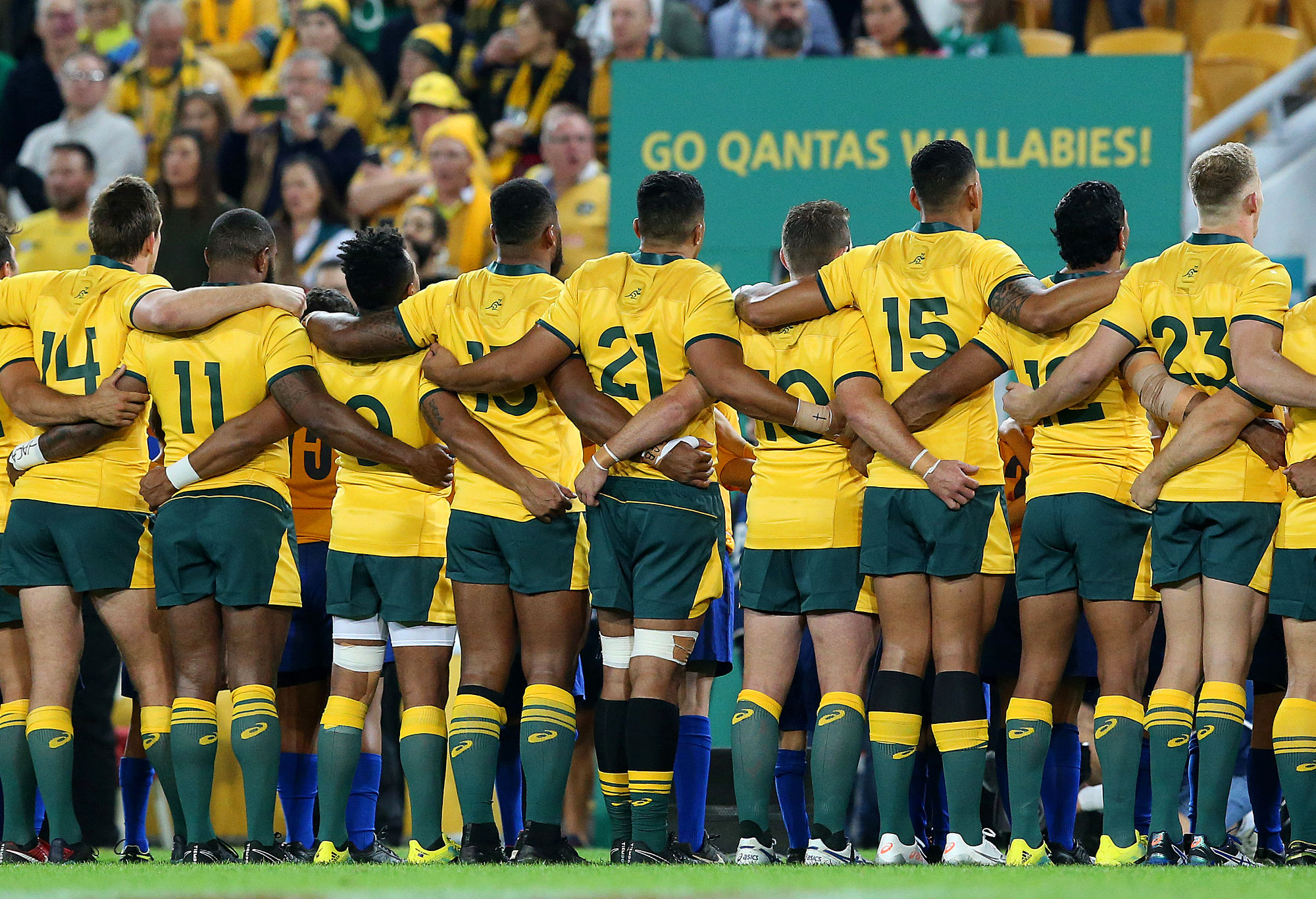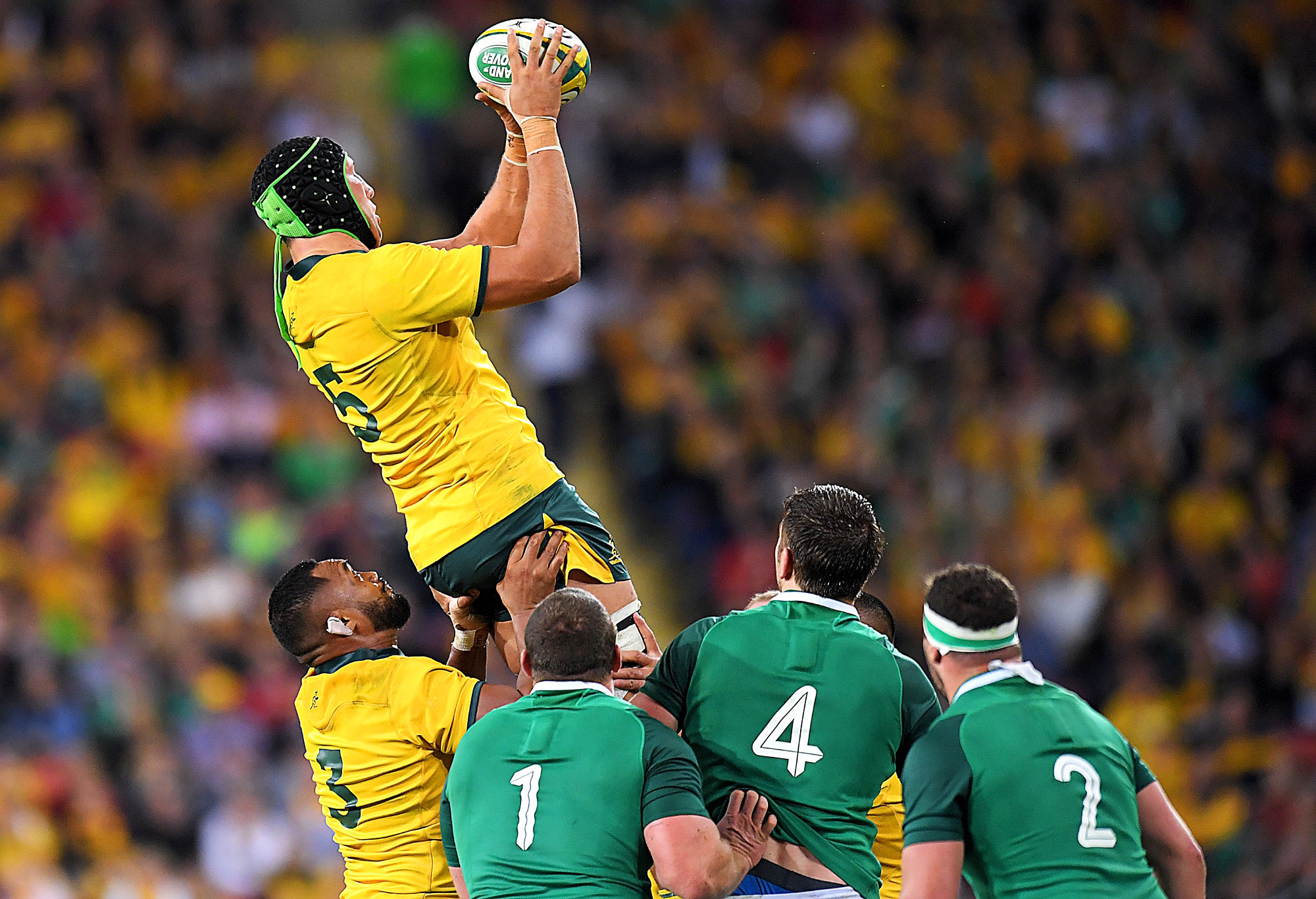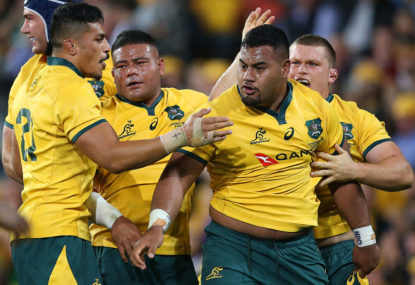A common refrain in recent years is that Super Rugby form is not transferable to the Test arena. As such, pundits lined up before this weekend’s matches to make the point that Australia in particular, was vulnerable to a Test match hardened Ireland team enjoying a 12-match winning streak.
Former Irish test lock Donal Lenihan told the Sydney Morning Herald “there’s a feeling that it (Super Rugby) doesn’t prepare people for Test rugby”, while in The Australian Mark Ella described last week’s pulsating Waratahs versus Reds match as “fairy floss rugby”, and the headline to Alan Jones’ weekly column boldly exclaimed, “Soft Super Rugby failing to deliver Test-ready Wallabies”.
Jones and Ella were kings of the rugby world in 1984; Lenihan’s stellar 52-cap Test career spanned 1981-1992. All have outstanding rugby legacies, but the game has changed markedly since those amateur times and, as the Wallabies showed in their impressive 18-9 win, it is a dangerous pursuit to be making predictions based on a faulty premise.
While Test rugby remains attritional, and is the ultimate examination of the strength of mind and body, evolutionary law changes, and the improved skills and athletic development of players are such that attacking rugby is rewarded, and the number of arm-wrestle, slug-fest matches decided by a penalty goal or drop kick has been dramatically reduced.
This is something that New Zealand rugby worked out a long time ago – while defence will always be critically important, you don’t have to keep the opposition scoreless, you just need to score more points than them.
In truth, the Super Rugby analogy applies more correctly to the Rugby Championships, where – particularly in a World Cup year – the winning sides in Super Rugby have not necessarily aligned with national team results in the Test series. But critics and fans who rushed to dismiss last week’s derby in Brisbane because of brittle defence, and extrapolated this further, missed some important points.
Under the current laws, when teams play with pace and positive intent, and passes stick, the ball can be recycled too quickly for defences to get set properly. And with players finding themselves fatigued and/or caught out of position, tries accrue. This is what happened last week in Brisbane, but it never meant that a focused Wallabies were going to go AWOL in defence against Ireland.
The second factor missed by many was the rising confidence levels of leading Wallabies players as a result of improved Super Rugby performances this season.
Despite Nick Bishop expertly spelling out this improvement last week, and Brett McKay a day earlier reasoning that this improvement would likely flow into the Wallabies, many people clearly weren’t ready to shift from the negative mindset that has beset Australian rugby in recent years.
While this is only one win, what is surely obvious is how the quality of ball movement shown by the Waratahs against the Chiefs and Reds, the starchy professionalism shown by the Rebels against the Blues, the developing scrum strength shown by the Reds, and the resilience shown by the Brumbies against the Bulls all fed into this Wallabies performance.

(Photo by Jono Searle/Getty Images)
Everybody who plays and coaches in Super Rugby knows how difficult the competition is, with four New Zealand franchises the testing material for any rugby side, attritional contests in South Africa and the demands of travel other major imposts. To suggest that somehow Super Rugby is “soft” is simply ignorant, or deliberately inflammatory, or both.
Further, with New Zealand Super Rugby franchises regularly racking up high scores, nobody has been claiming that the All Blacks aren’t well prepared for Test rugby. It is only churlish to suggest that Australia can’t claim the same.
The sting in the Wallabies defence throughout spoke to this, and Michael Cheika’s task this week will be to ensure that the same level of intensity, organization and accuracy is applied consistently throughout this series, and beyond.
A third factor missed was too much weight being ascribed to the Wallabies abject performance against Scotland to end 2017, and it is here where an interesting parallel can be drawn to all of the current northern hemisphere touring sides.
Scotland are a side on the ascendancy, who enjoyed one of their finest hours in their 53-24 win over the Wallabies at Murrayfield. But the Wallabies that day were a spent force, mentally and physically, at the rump end of their season.
Can the same be said now for Ireland, France and England? It is reasonable to expect all three sides to hit back hard next week – Ireland in particular, whose pride will be hurt, and who will look to strengthen their personnel.
But with too much rugby being played and player fatigue a problem that nobody in the rugby world seems to be able to do anything about, it will be a huge task from here for tired bodies to turn a 0-1 deficit into a 2-1 series win.
Joe Schmidt will no doubt believe it possible, noting the Wallabies’ disinclination to kick long to clear their defensive quarter – a recurring theme in Cheika’s side – that allowed Ireland to dominate territory and the run of play in the third quarter.
It will only take a little more purpose and daring in attack – and perhaps CJ Stander improving his peripheral vision – to convert that dominance into points.
More width in defence is another work-on, but Schmidt will find likely less room to move at the scrum, with the Wallabies finding a solid edge all night, offsetting their uncertain lineout.
He (and a returning Jonathan Sexton) will also know that it is pointless to kick the ball away to Israel Folau and Dane Haylett-Petty, Folau providing another ‘wow moment’ with a superb overhead catch that ultimately led to a penalty and lineout play from where Will Genia picked up David Pocock on an angled run – the game’s crucial score.
Genia also played a small but key role in Bernard Foley’s first half try – watch how after Samu Kerevi carries the play forward after Haylett-Petty’s run and a quick ruck is created, Genia passes to an in-motion Foley directly off the floor.
So close to the try line, with the defence fractured, many players would have been tempted to have a snipe themselves, but if Genia had picked the ball up or taken even a single step before passing, Foley would have been taken out in the corner.
For his trouble, Genia was voted ‘man-of-the-match’ by Ten Network viewers which seemed to downplay the impact that Kurtley Beale and especially, David Pocock, had on the match.
Nevertheless, considering it was a popular vote, in a Brisbane home Test, perhaps the real surprise was that Quade Cooper didn’t win the award!
While both Wallabies’ tries were expertly taken, they were denied a third, to a flying Folau, courtesy of a curious intervention by TMO Ben Skeen, who drew attention to an indiscretion by Adam Coleman several phases prior.

(Photo by Albert Perez/Getty Images)
It was bad enough that the incident happened so far back it was nearly in the warm-up, but where referee Marius van der Westhuizen and Skeen drew the ire of fans was that Coleman’s actual transgression did not warrant the intervention.
The laws do provide for such sanction, but common sense suggests that if the game demands consistency, and doesn’t want don’t a rash of similar TMO interventions every time a try is scored, such a ruling should only apply where the act is dangerous and/or plays a contributing role in the try.
English referee Luke Pearce also found himself in the firing line in Auckland, issuing a yellow card to French lock Paul Gabrillagues for a tackle that he no doubt realized afterwards, should have examined further before reaching to his pocket.
While the French were still well in the game on the scoreboard, the All Blacks had begun to assert control and if the card was the straw that broke the camel’s back, there were multiple stress fractures already evident.
It is to rugby’s credit that the culture of the sport dictates that players accept the referee’s decision.
Despite his unjustified send-off, Gabrillagues took his medicine without complaint and won plenty of admiration and respect in the process.
As did van der Westhuizen and Pearce for marching Aaron Smith and Conor Murray for – as is the want of any halfback worth his salt – offering unsolicited advice.
This result – and the second half performance – would have exceeded coach Steve Hanson’s expectations, particularly with France offering plenty early on, and with his best forward, Brodie Retallick, running water bottles. Retallick’s absence provided an opportunity for Scott Barrett to step into the role of midfield distributor, which he handled with aplomb.
Once the All Blacks found their rhythm there was no way for the pitiless French to stem the flow, the introduction of Damien McKenzie and a rampaging Ngani Laumape only upping the ante.
Rieko Ioane (showing the benefits of his pre-match sparring session with Blues teammate Blake Gibson) was all class, exceeded only by fellow winger Codie Taylor, who taught Teddy Thomas a lesson on the benefits of wanting the ball more than your opponent.
The match highlight however was ex-bouncer Karl Tu’inukuafe making his Test debut from the bench, instantly powering through the French front row, and a TV camera capturing the normally expressionless Hanson allowing himself a momentary look of, ‘yeah we got that one right.’
As it so often does, Ellis Park, Johannesburg delivered a Test match for the ages, an expansive England taking advantage of the Springbok centres and wingers losing contact with each other in the defensive line, and racing the clock to a 24-3 lead.
The home side eventually found its feet, began to recycle quickly and reaped reward for employing Aphiwe Dyantyi and S’busiso Nkosi on the same wing and the rampaging RG Snyman in centrefield.
England lost its shape and discipline and, despite a sweeping counter-attacking try to Jonny May giving them a final sniff, South Africa held on to win 42-39, a result that after 20 minutes no-one would have thought possible.
As New Zealand and Australia had done before them, South Africa employed another tactic straight out of the Super Rugby playbook – turning down kickable penalty goals in favour of maintaining possession and pressure on the defensive goal-line.
It is further evidence of how Test rugby is evolving – although the sight of Eliot Daly landing an early penalty goal from 60.5m was a wonder to behold.
With Japan disposing of Italy 34-17 it was only Argentina, of the Super Rugby brethren, who faltered, at home to Wales, by 23-10.
For years fans have scratched their heads trying to figure why Argentina’s players haven’t been able to transfer their international form (semi-finalists at the last World Cup) to Super Rugby.
Last year, talismatic hooker Agustin Creevy talked to me about “two different essences” and the difficulty in wearing two different jerseys. Today’s question might well be how it is that they can’t transfer their winning Jaguares mentality to the Test arena?
The beauty for coach Daniel Hourcade is that Argentina gets another chance next weekend – as do France, Ireland and England – and lovers of Test rugby get another opportunity to ponder why there are some people in the game who would see these great contests diminished in favour of club competitions.































































































